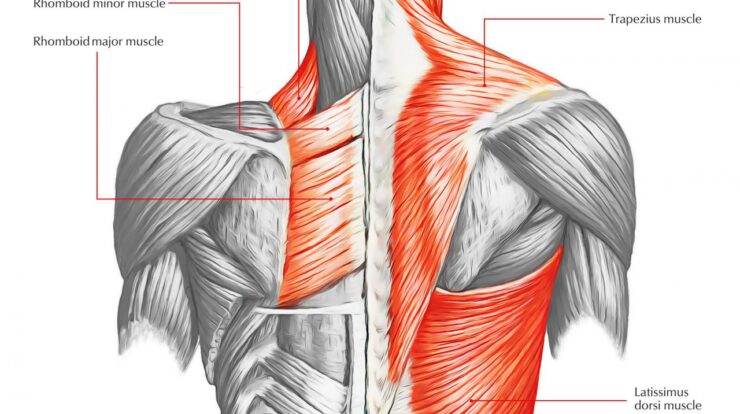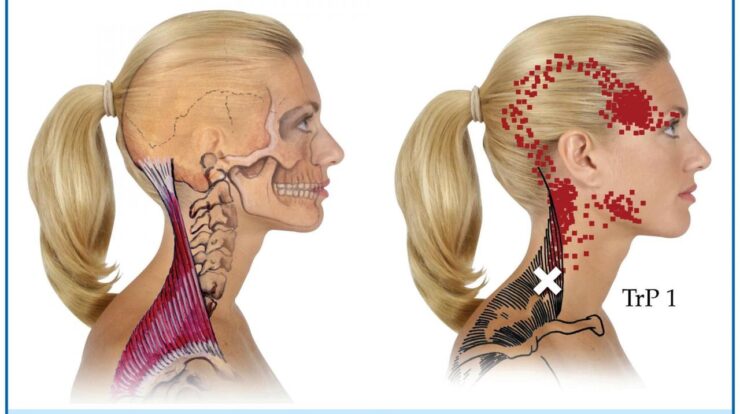
Suffering from gum disease? Don’t fret! We’ve got you covered with our ultimate guide on how to cure gum disease without a dentist. Join us as we explore natural remedies, home treatments, and lifestyle tweaks that will help you restore your oral health.
From herbal concoctions to DIY rinses, we’ll provide you with a comprehensive toolkit to combat gum disease effectively. So, grab your toothbrush, and let’s dive into the world of gum health!
Natural Remedies for Gum Disease
Gum disease, also known as periodontal disease, is a common condition that affects the gums and supporting structures of the teeth. It can range from mild inflammation (gingivitis) to severe infection (periodontitis), which can lead to tooth loss if left untreated.
While professional dental care is essential for managing gum disease, several natural remedies may complement your treatment plan and provide additional support.
Herbal Treatments
Certain herbs have antibacterial and anti-inflammatory properties that may help reduce gum inflammation and improve oral health.
- Green Tea:Contains catechins, powerful antioxidants with antibacterial and anti-inflammatory effects.
- Turmeric:Curcumin, the active compound in turmeric, has potent anti-inflammatory properties and may inhibit the growth of bacteria associated with gum disease.
- Myrrh:An antiseptic and astringent herb that can help reduce inflammation and kill bacteria.
These herbs can be consumed as teas, used in mouthwashes, or applied topically to the gums.
Essential Oils
Essential oils extracted from plants have antimicrobial and anti-inflammatory properties that may benefit gum health.
- Tea Tree Oil:A powerful antiseptic and antibacterial agent that can help reduce inflammation and kill bacteria.
- Peppermint Oil:Contains menthol, which has antibacterial and anti-inflammatory properties.
- Eucalyptus Oil:An antiseptic and anti-inflammatory oil that can help reduce swelling and kill bacteria.
Essential oils can be added to mouthwashes, toothpaste, or used in a diffuser to create an antibacterial environment in the mouth.
Dietary Changes
Maintaining a healthy diet can support gum health by providing essential nutrients and reducing inflammation.
- Fruits and Vegetables:Rich in antioxidants and vitamins that support gum health.
- Omega-3 Fatty Acids:Found in fatty fish and walnuts, these essential fatty acids have anti-inflammatory properties.
- Avoid Sugary Foods and Drinks:Sugar feeds bacteria that can contribute to gum disease.
It’s important to note that these natural remedies should not replace professional dental care. Consult your dentist before using any herbal treatments or essential oils, as some may interact with medications or have potential side effects.
Home Remedies for Gum Disease

Gum disease is a common problem that can lead to pain, bleeding, and even tooth loss. While there are many different ways to treat gum disease, some home remedies can be effective in reducing symptoms and preventing the condition from worsening.There
are a few different home remedies that can be used to treat gum disease. These include:
Salt Water Rinses
Salt water rinses are a simple and effective way to reduce inflammation and kill bacteria in the mouth. To make a salt water rinse, dissolve 1/2 teaspoon of salt in 8 ounces of warm water. Rinse your mouth with the salt water for 30 seconds, then spit it out.
Repeat this process several times a day.
Tea Tree Oil Treatments
Tea tree oil is a natural antiseptic and antibacterial agent. It can be used to kill bacteria in the mouth and reduce inflammation. To use tea tree oil for gum disease, add a few drops of tea tree oil to a glass of water.
Swish the mixture around your mouth for 30 seconds, then spit it out. Repeat this process several times a day.
Gum disease is a common problem that can lead to serious health issues if left untreated. While seeing a dentist is the best way to get professional treatment, there are some things you can do at home to help cure gum disease.
How to cure gum disease without a dentist can be done by practicing good oral hygiene, such as brushing and flossing regularly. Additionally, there are a number of natural remedies that can help to reduce inflammation and pain associated with gum disease.
Baking Soda Paste
Baking soda is a natural abrasive that can help to remove plaque and bacteria from the teeth. It can also help to neutralize acids in the mouth, which can help to prevent gum disease. To make a baking soda paste, mix 1 teaspoon of baking soda with 2 teaspoons of water.
Brush your teeth with the baking soda paste for 2 minutes, then rinse your mouth with water. Repeat this process several times a week.
Tips for Proper Oral Hygiene and Gum Care, How to cure gum disease without a dentist
In addition to using home remedies, it is important to practice good oral hygiene to prevent and treat gum disease. This includes:
- Brushing your teeth twice a day with a fluoride toothpaste.
- Flossing your teeth once a day.
- Eating a healthy diet that is low in sugar and processed foods.
- Avoiding smoking.
- Seeing your dentist for regular checkups and cleanings.
DIY Treatments for Gum Disease

DIY treatments for gum disease can provide relief from symptoms and potentially improve gum health. However, it’s crucial to note that these treatments should not replace professional dental care and may have potential side effects.
The following table compares different DIY treatments for gum disease, including their ingredients, benefits, and potential side effects:
| Treatment Method | Ingredients | Benefits | Potential Side Effects |
|---|---|---|---|
| Hydrogen Peroxide Rinse | 3% hydrogen peroxide diluted in water | Antibacterial properties, reduces inflammation | Can cause irritation or damage to teeth and gums if used excessively |
| Aloe Vera Gel Applications | Pure aloe vera gel | Anti-inflammatory, antibacterial, and soothing properties | Rare, but may cause allergic reactions in some individuals |
| Clove Oil Mixture | Clove oil diluted in a carrier oil (e.g., coconut oil) | Antibacterial, analgesic, and anti-inflammatory properties | Can cause skin irritation or allergic reactions if used undiluted |
Lifestyle Changes for Gum Disease
Making positive lifestyle changes can significantly contribute to preventing and treating gum disease. These changes focus on improving overall health and well-being, which positively impacts gum health. This section will explore the influence of diet, stress, smoking, and alcohol consumption on gum health, providing recommendations for healthy habits and lifestyle modifications.
Diet
A balanced and nutritious diet is essential for maintaining good oral health. Consuming foods rich in vitamins, minerals, and antioxidants supports healthy gums and teeth. Fruits, vegetables, and whole grains provide essential nutrients, while limiting sugary foods, processed snacks, and sugary drinks helps reduce the risk of gum disease.
Stress
Chronic stress can negatively impact gum health. When stressed, the body releases hormones that can weaken the immune system, making it more susceptible to infections, including gum disease. Finding healthy ways to manage stress, such as exercise, meditation, or yoga, can help reduce its negative effects on gum health.
Smoking
Smoking is one of the most significant risk factors for gum disease. The chemicals in cigarettes damage the gums and teeth, increasing the risk of infection and gum disease progression. Quitting smoking is the single most effective way to improve gum health and overall well-being.
Alcohol Consumption
Excessive alcohol consumption can also contribute to gum disease. Alcohol can dry out the mouth, reducing saliva production, which is essential for maintaining a healthy oral environment. Additionally, alcohol can weaken the immune system, making the gums more susceptible to infection.
When to Seek Professional Help for Gum Disease: How To Cure Gum Disease Without A Dentist

Early detection and treatment of gum disease are crucial to prevent severe complications. If you experience any persistent symptoms, it’s essential to consult a dentist promptly.
Warning Signs to Look Out For
*
-*Persistent Bleeding
Bleeding gums during brushing or flossing is a common sign of gum disease.
-
-*Swelling and Redness
Gum disease is a common problem that can lead to serious health issues if left untreated. The good news is that there are a number of things you can do to cure gum disease without a dentist, including practicing good oral hygiene, using natural remedies, and making lifestyle changes.
For more information on how to cure gum disease without a dentist, click here . Curing gum disease without a dentist is possible with the right approach and dedication.
Inflamed gums appear swollen, red, and may feel tender to the touch.
-*Pain
Pain in the gums, especially when chewing or biting, indicates advanced gum disease.
-*Receding Gums
There are many different ways to cure gum disease without a dentist. Some people find that brushing and flossing their teeth twice a day is enough to keep their gums healthy. Others may need to use a mouthwash or floss more often.
If you have gum disease, it is important to see a dentist to get a diagnosis and treatment plan. However, if you are looking for ways to cure gum disease without a dentist, there are a few things you can try.
How to cure gum disease without a dentist is a great resource for more information on this topic.
Gums that have pulled away from the teeth, exposing the tooth roots.
-*Pus Formation
Accumulation of pus between the teeth and gums, indicating an infection.
-*Loose Teeth
Gum disease can weaken the bone supporting the teeth, leading to loose or wobbly teeth.
-*Bad Breath
Persistent bad breath (halitosis) can be a sign of gum disease.
Epilogue
Remember, gum disease is a common issue that can be effectively managed with the right approach. By embracing natural remedies, implementing home treatments, and making positive lifestyle changes, you can restore your gum health and maintain a dazzling smile. So, stay tuned, follow our tips, and say goodbye to gum disease for good!
FAQ
Can I cure gum disease completely without a dentist?
While some cases of gum disease can be managed at home, severe cases may require professional dental care. Early detection and treatment are crucial for preventing gum disease from progressing.
Are natural remedies effective against gum disease?
Certain natural remedies, such as tea tree oil and aloe vera, have antibacterial and anti-inflammatory properties that can help reduce gum inflammation and improve oral health. However, they should not replace regular dental checkups and professional treatments.
What are the warning signs of gum disease?
Bleeding gums, persistent bad breath, receding gums, and loose teeth are all common signs of gum disease. If you experience any of these symptoms, consult a dentist promptly.





